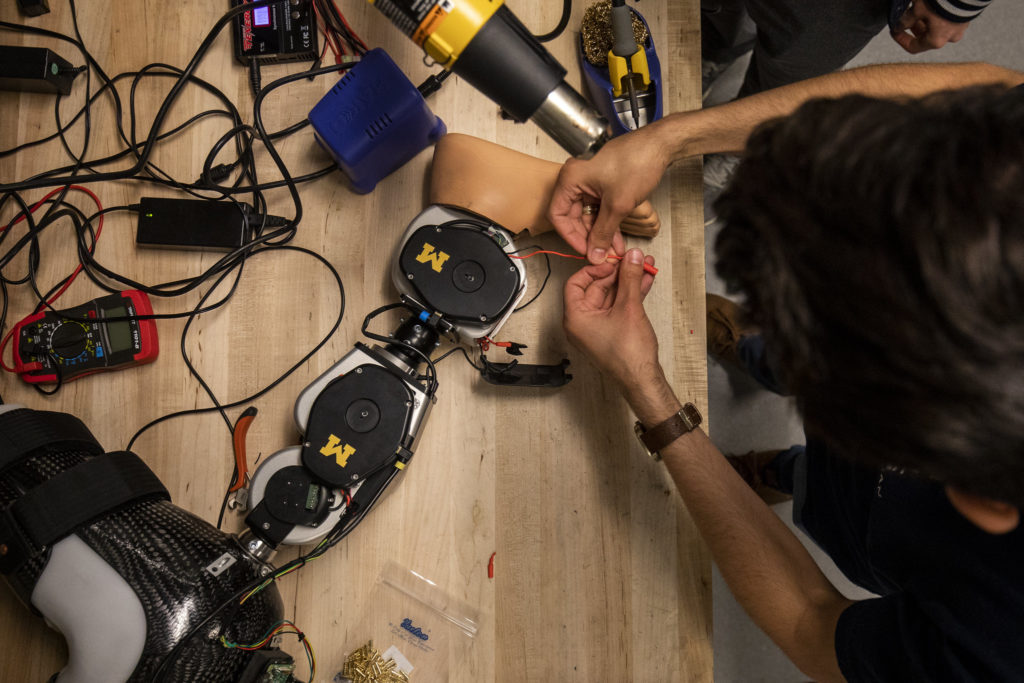Next steps of the Open Source Leg
October 13, 2020

A new paper on the Open Source Leg, an artificially-intelligent bionic prosthetic leg developed by University of Michigan researchers, was recently published in Nature Biomedical Engineering.
The open-source project, launched publicly last year, is meant to ease the research of controls for prostheses by offering an accessible, comparable, and universal platform available to a broad array of scientists and engineers.
Continue reading ⇒